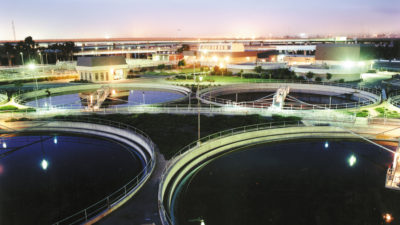Monitoring COVID-19 prevalence in municipal wastewater
Current efforts to track the spread of COVID-19 have largely relied on individual testing and hospital admission numbers. However, these data do not detect trends in the virus’s spread in the greater population, including those who are asymptomatic.
Kara Nelson, professor of civil and environmental engineering, is trying to change that. She is leading a multidisciplinary group of UC Berkeley researchers and working with the East Bay Municipal Utility District to accurately track COVID-19, measuring levels of the SARS-CoV-2 virus in wastewater to determine how it circulates in communities. By using wastewater monitoring, Nelson’s team will track the virus among many thousands of people by testing a sample from a single collection station.
The results will determine which strains of the virus are present in a given community, and whether new strains are being introduced from other regions due to increased contact and travel. When paired with clinical data, this information will provide a more complete picture that can be used by health authorities and decision makers as shelter-in-place restrictions are modified. The detection of new strains will also help identify novel pathogens that may threaten to cause future epidemics.
For this research, Nelson’s team has received funding from the Innovative Genomics Institute (IGI) and the Center for Information Technology Research in the Interest of Society (CITRIS).

